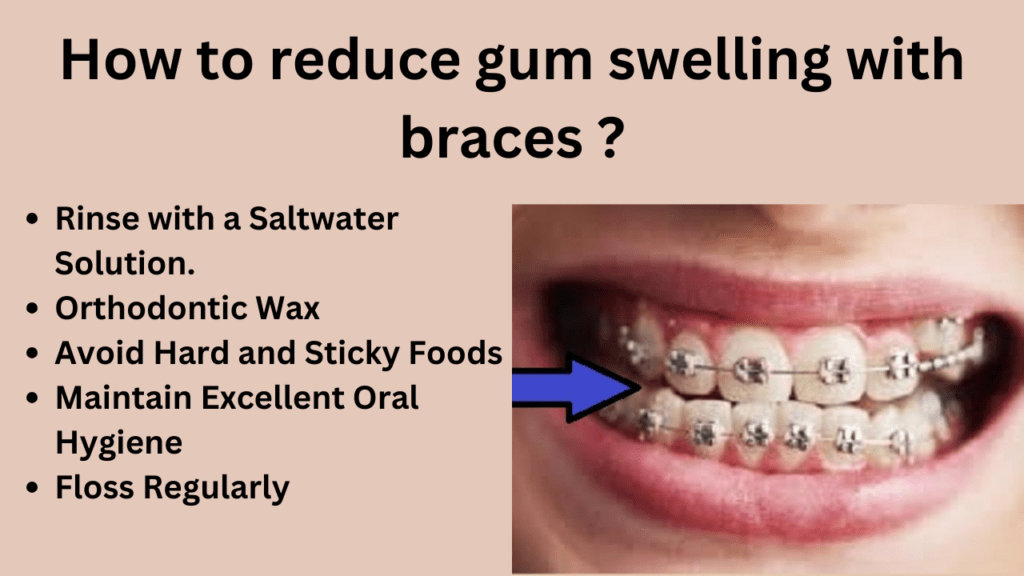Here you will learn about “how to reduce gum swelling with braces”.
Braces are a common orthodontic treatment used to straighten teeth and correct various dental issues. While they can result in a beautiful, healthy smile, they can also bring about some temporary challenges, one of which is gum swelling.
If you are experiencing gum swelling with braces, don’t worry; there are steps you can take to alleviate discomfort and promote healthier gums during orthodontic treatment.
WHY Gum Swell with Braces
Gum swelling, technically known as gingival inflammation, is a common side effect of wearing braces. It occurs primarily because braces introduce foreign objects (brackets, wires, and bands) into your mouth, which can irritate the soft tissues, including your gums.
The friction and pressure caused by braces may lead to inflammation and discomfort. However, this issue is usually temporary and can be managed effectively with proper care and hygiene practices.
9 Tips to Reduce Gum Swelling with Braces
- The foundation for preventing gum swelling with braces is maintaining impeccable oral hygiene. Brush your teeth after every meal, using a soft-bristle toothbrush and fluoride toothpaste. Pay extra attention to cleaning around the brackets and wires, as these areas are prone to plaque buildup.
- Flossing becomes even more critical when you have braces. Use orthodontic floss threaders or floss picks to clean between your teeth and around the wires and brackets. This helps remove food particles and bacteria that can contribute to gum irritation and swelling.
- Gargling with a warm saltwater solution can soothe inflamed gums and reduce swelling. Mix a teaspoon of salt in a glass of warm water and rinse your mouth gently for 30 seconds to a minute after brushing your teeth.
- Over-the-counter oral gels containing ingredients like benzocaine or aloe vera can provide temporary relief from gum discomfort. Apply a small amount to the affected areas.
- Braces often have rough edges or wires that can irritate your gums. Orthodontic wax is a soft, pliable substance that you can place over these areas to create a barrier between the braces and your gums, reducing friction and irritation.
- Drinking plenty of water helps keep your mouth moist and reduces the likelihood of gum irritation. A dry mouth can exacerbate gum swelling, so stay hydrated throughout the day.
- Foods that are hard or sticky can increase the risk of damaging your braces and causing further gum irritation. Stick to a soft diet and avoid items like hard candies, popcorn, and chewing gum.
- Make sure to attend your scheduled orthodontic appointments. Your orthodontist can adjust your braces, which may help alleviate some of the pressure and discomfort associated with gum swelling.
- If you experience pain along with gum swelling, you can consult your orthodontist or dentist about using over-the-counter pain relievers like ibuprofen or acetaminophen. Always follow their recommendations and dosing instructions.
